Asian Pacific American Heritage Month
May is Asian/Pacific American (APA) Heritage Month and CDEI is taking this occasion to highlight those who identify as Asian, Asian American, or Pacific Islander that have contributed to the rich history and ongoing accomplishments of the Woods Hole Oceanographic Institution. Though WHOI's relationship began with the exploitation of the indigenous peoples of Bikini Atoll, the last forty years have seen increased cooperation with indigenous Asian and Pacific Islanders and greater representation of A/P Americans in the lab, out at sea, and in our community. The individuals highlighted here tell the story and give visibility to those that have been traditionally marginalized or underrepresented in ocean sciences. The hope is that these profiles will encourage others of APA backgrounds to pursue opportunities in the field.
May was chosen as APA Heritage Month to commemorate the immigration of the first Japanese to the United States (May 7, 1843) and to mark the anniversary of the completion of the transcontinental railroad on (May 10, 1869) as the majority of the workers who laid the tracks were Chinese immigrants.
Scientific Staff
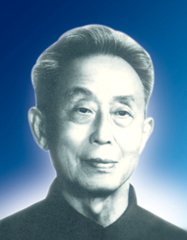
Shu Ping Chu (1907-1976)
Shu Ping Chu is a world-renowned marine ecologist, marine chemist, plankton biologist, aquaculture scientist and educator, pioneer on experimental ecology of plankton in the world, founder and pioneer of marine ecology and marine chemistry and of aquaculture and limnology in China. In 1946 Chu was invited to WHOI by George Clarke as a senior research fellow and to direct the algae research occurring in the post-war years. Shu Ping was brought to the Institution’s attention by the “Chu No.10 Medium” as first published in his doctoral thesis for growing planktonic algae is a classic standard formula that is still widely used to date in the world. After his return to China, Shu Ping spearheaded the country’s aquaculture programs and founded the Yellow Sea Fisheries Research Institute (YSFRI), and served as the first President. Unfortunately, in his later years of scientific work Dr. Chu became seriously ill due to persecution and maltreatment during China’s Cultural Revolution.
Though Shu Ping Chu was only a WHOI Fellow for 1946, he contributed greatly to the science research here and abroad. Dr. Chu also participated culturally in the community, by sharing with WHOI staff the customs and traditions from China that they may not have otherwise been exposed to. During the “WHOI Follies,” a variety show put on by staff, Shu Ping demonstrated Chinese Shuttlecock – a game most of today would compare to hacky-sack and footbag. In the rare footage we have, Chu is seen giving a lesson to four young researchers.
Susumu “Sus” Honjo (1933-2020)
Susumu Honjo was born in Japan and received his formal education at Hokkaido University and was one of the first post WWII Japanese Fulbright scholars to the US. His pioneering work as a scientist at Woods Hole Oceanographic Institution contributed to the understanding and observations of marine particle compositions and fluxes and of the oceanic biological pump.
Along with his pioneering research in biogeochemical particle flux studies, Honjo also led the development of several notable oceanographic instruments over four decades including the sediment trap, moored profiler, and ice-tethered Arctic environmental buoys.
Sus was a founder of the International Joint Global Ocean Flux Study (JGOFS) established in 1983 to understand the ocean carbon cycle and the next year accepted WHOI’s Columbus O’Donnell Iselin Chair for Excellence in Oceanography. Sus was also active in education and training programs, supervising many graduate students in the MIT/WHOI Joint Program in Oceanography and Applied Ocean Science and Engineering and postdoctoral investigators.
In 2003, Dr. Honjo was the recipient of one of Japan's highest honors, the Imperial Order of the Rising Sun. In 2019, he was the recipient of the first ever WHOI Distinguished Emeritus Award for his lifetime achievements.
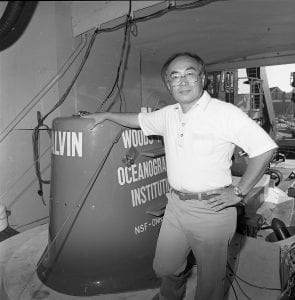
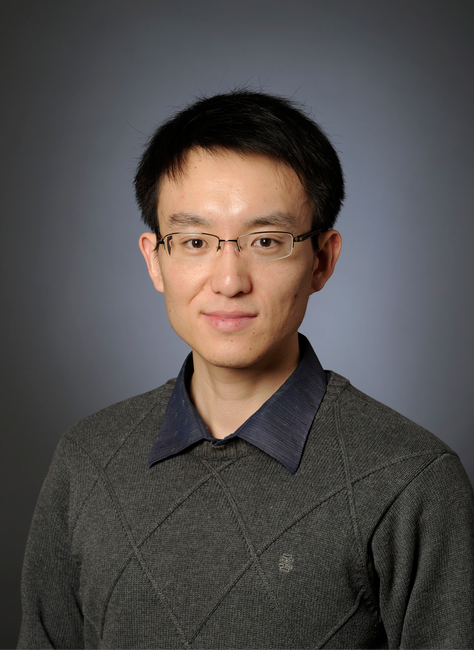
Ke Chen - Associate Scientist
I am interested in problems associated with coastal ocean and climate, including circulation dynamics, shelf-ocean exchanges, physical-biological interactions, and how these processes connect in the climate system, e.g., on extreme variability like Marine Heatwaves and long-term changes. I strive to use a balanced approach in my research and rely on both numerical modeling and observations. I am very interested in advancing the understanding of our ocean, one key component of the rapidly changing climate system, and helping develop solutions based on the scientific understanding.
More information here.
Rui Xin Huang - Scientist Emeritus
Rui Xin Huang’s primary research interest is large-scale oceanic circulation, including wind-driven gyres and thermohaline circulation. When he was in high school, his dream was to become an inventor like Edison. Through a long and winding road, he came to Woods Hole, and found oceanography an exciting field.
"Huang’s research has centered on theories and models of the oceanic circulation with a particular interest in thermocline and thermohaline circulation and their links to climate dynamics. He has solved many of the classical problems in ocean circulation that are crucial to understanding how the oceans control climate, and is working to correct many of the problems that exist in models of the climate system. He is considered a pioneer in the study of the theory of the wind-driven ocean thermocline, the layer separating the upper warmer ocean water from lower colder water. Huang was the first person to take existing, simple layer models of the thermocline and produce a useful, numerical version of the theory adequate to describe a realistic and continuous oceanic thermocline flow." This was taken from the article announcing his receipt of the W. Van Alan Clark Chair for Excellence in Oceanography.
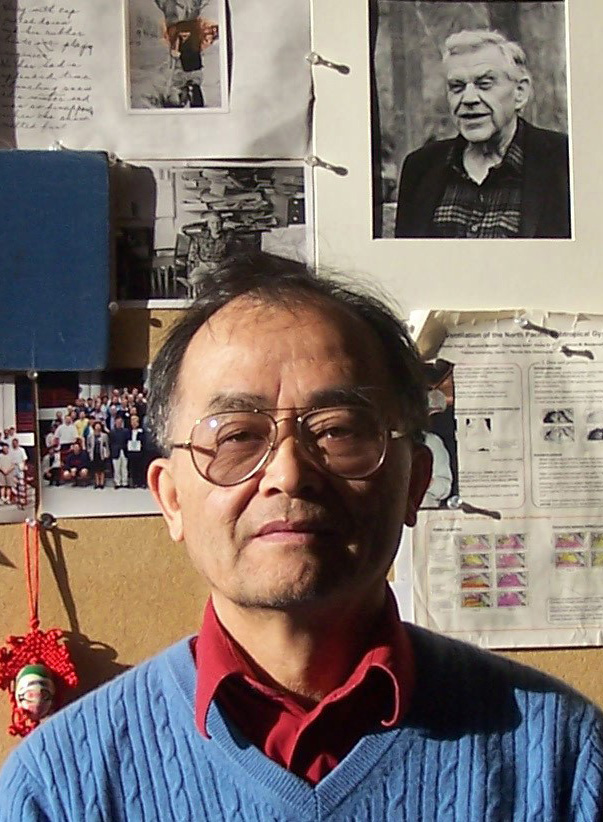
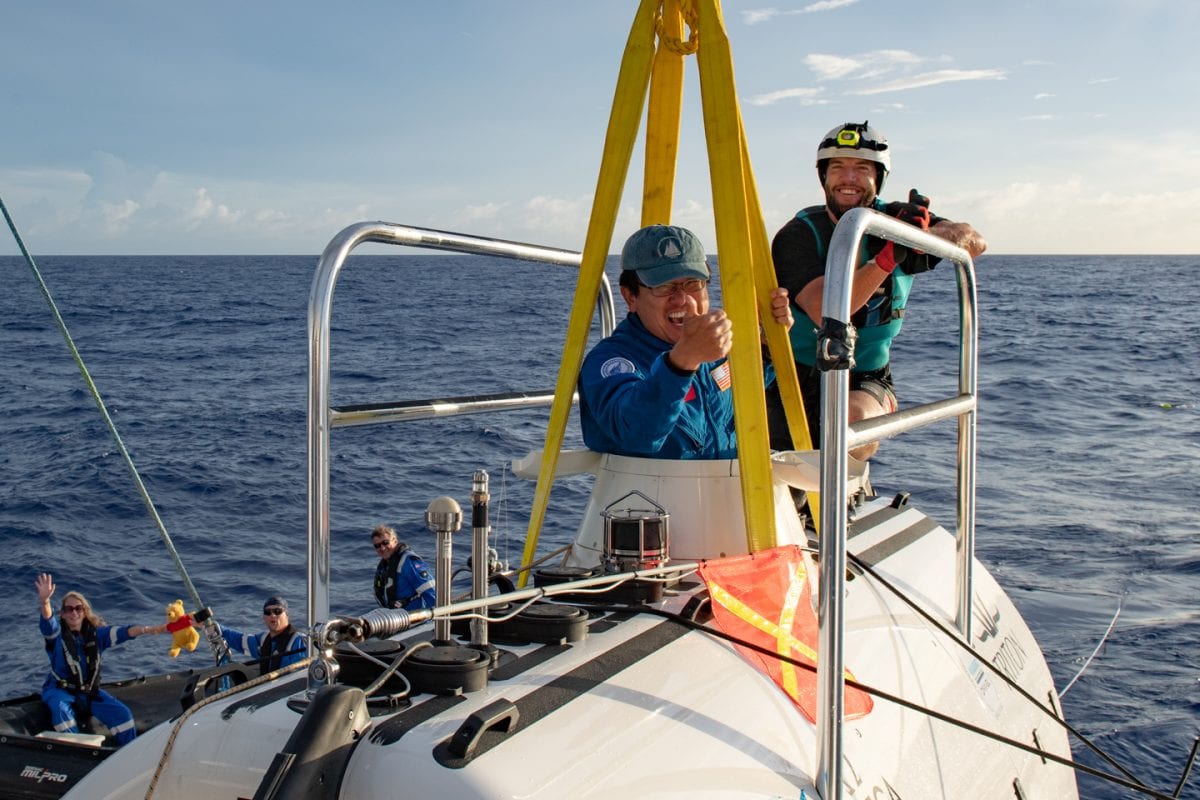
Ying-Tsong Lin - Associate Scientist with Tenure
Ying-Tsong Lin is an acoustic scientist who studies how sound propogates in the ocean. He is the 12th person in history, as well as the first Taiwanese-American and the first person of Asian descent to travel to the deepest part of the ocean, the Challenger Deep. Lin and pilot Victor Vescovo visited the central pool of the Mariana Trench, at a depth of 10.9 kilometers (6.8 miles) aboard the deep-submergence vehicle Limiting Factor.
Yaqin Liu - Assistant Scientist
I am an environmental economist focusing on marine resource sustainable development and conservation. I study coupled human-natural systems in coastal zones and oceans. My research involves modeling human behavior in utilizing marine resources with feedbacks from ecosystems.
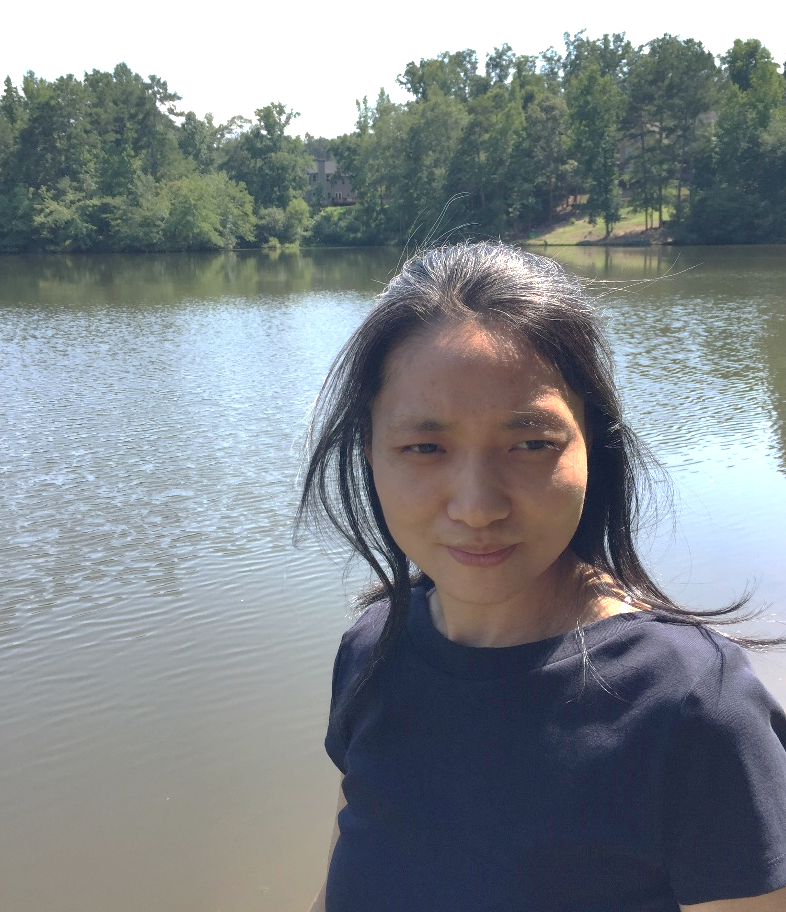
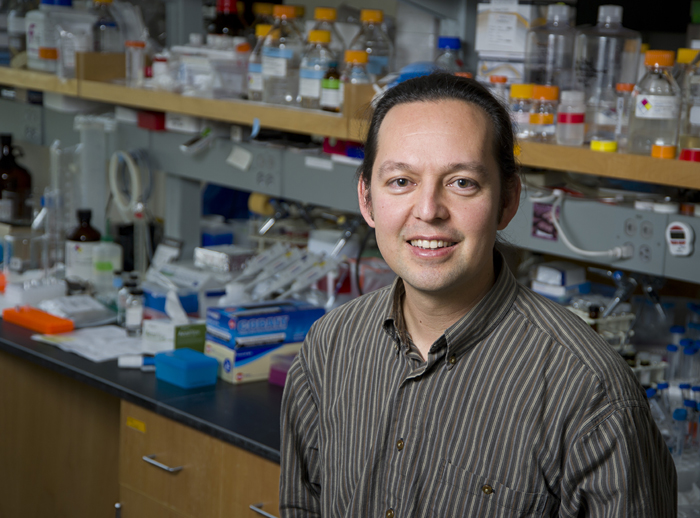
Makoto ("Mak") Saito - Senior Scientist
Mak is of mixed race identity, with a Japanese father from Hiroshima and a Scottish mother. He is a first generation US citizen, born and raised in Washington DC. Mak received his PhD from the MIT-WHOI Joint Program and joined the Marine Chemistry and Geochemistry faculty in 2003. His research involves the study of nutritional and toxic metal use in microbes by developing methods for protein measurements that can be applied to both global biogeochemical cycles and pathogens. Mak and his family also volunteer on Asian American health issues that have affected their family, particularly stomach cancer caused by the bacterium Helicobacter pylori that is more virulent in Asians and is often undiagnosed in Asian immigrants.
More information here.
Zhaohui Aleck Wang - Associate Scientist with Tenure
I am a seawater carbonate (CO2) chemist. My main research interests include the marine inorganic carbon cycle; ocean acidification and its impacts on marine biogeochemistry, biology, and fisheries; blue carbon and carbon exports from intertidal wetlands; and new sensor technologies for in situ measurements of CO2 parameters and other chemical species. I am particularly interested in applying new sensor technologies to resolve and study the CO2 system and inorganic carbon fluxes in highly dynamic environments such as coastal wetlands, coral reefs, and other coastal systems.
More information here.
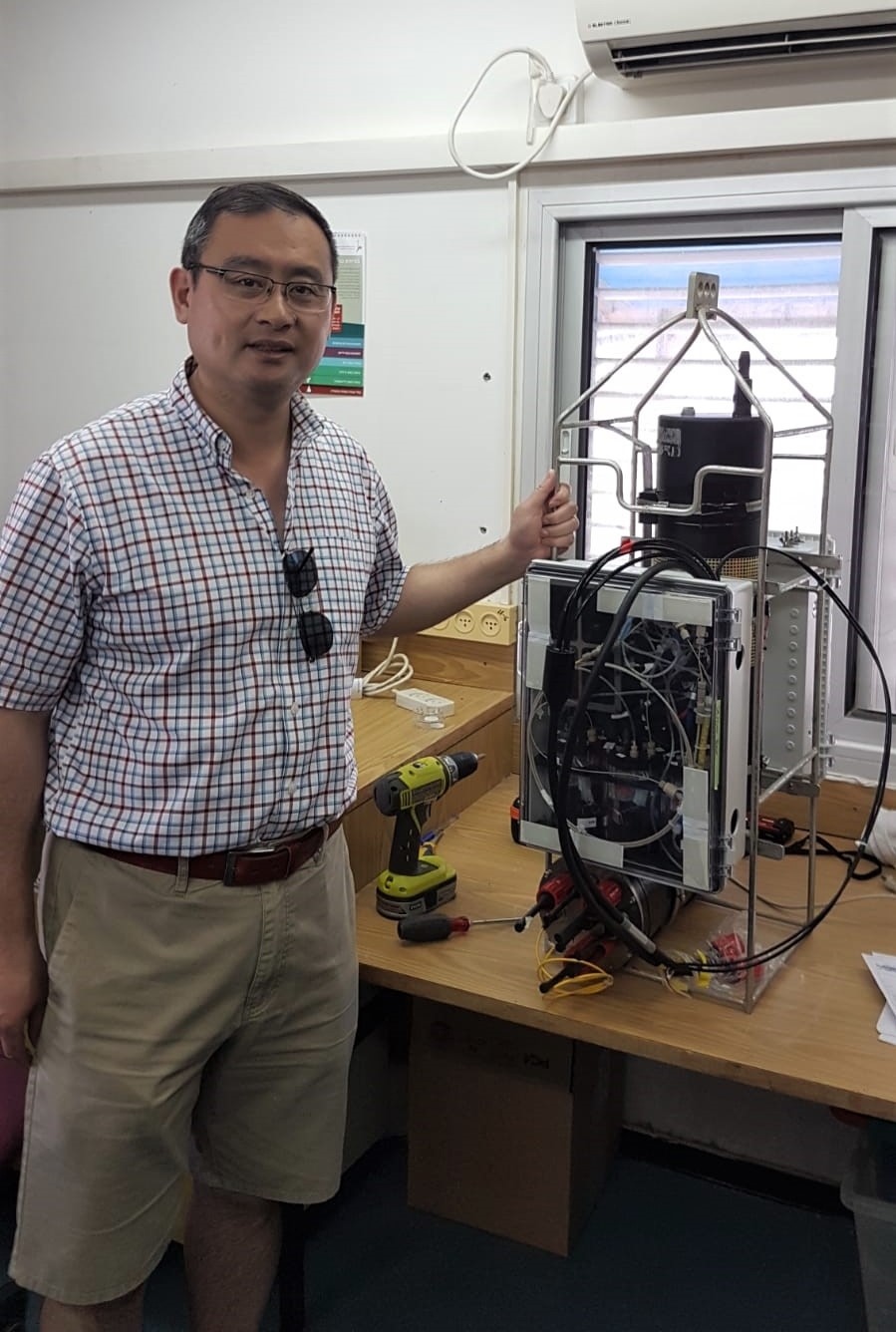
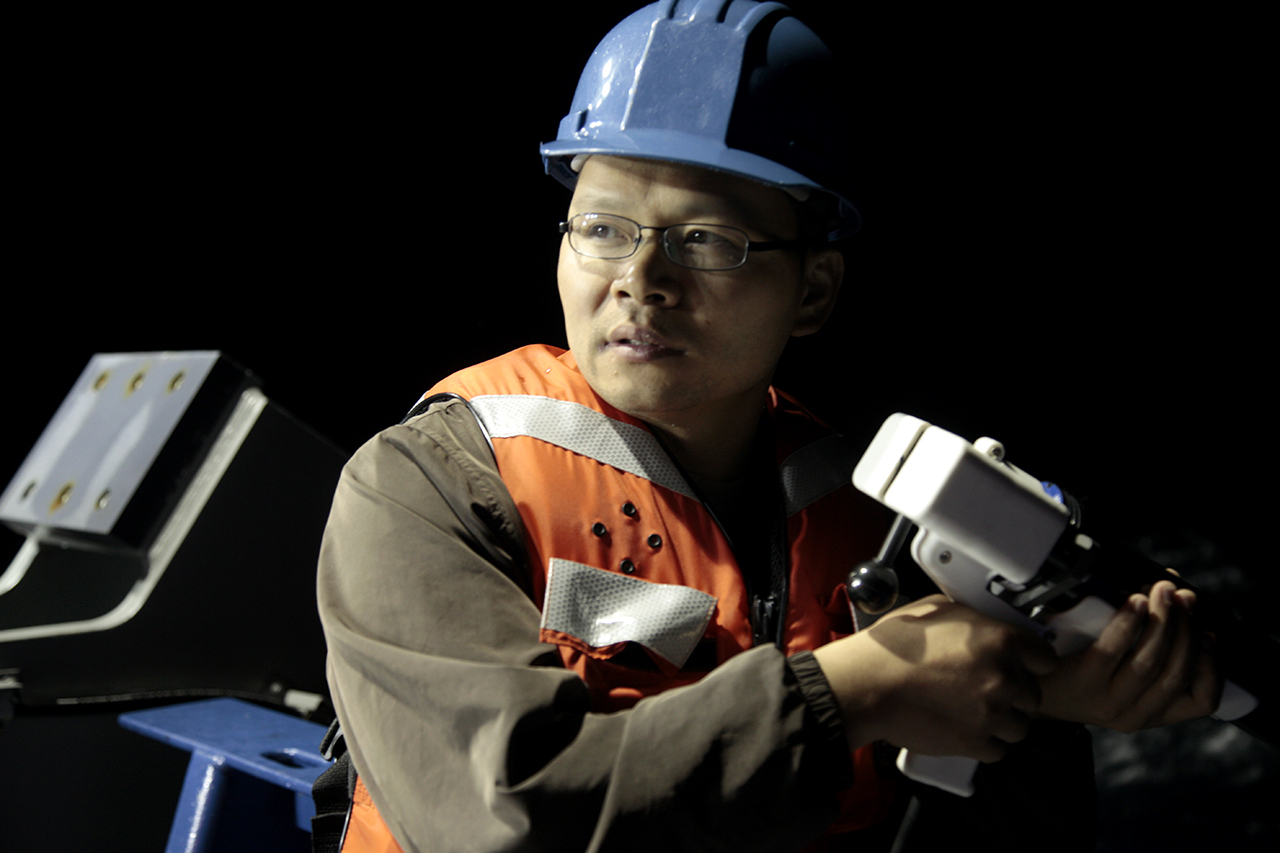
Weifeng (Gordon) Zhang - Associate Scientist
My research focuses on the dynamics and/or interactions of different physical processes in the ocean, such as river plumes, eddies, fronts, internal waves and seafloor topography. I am passionate about collaborating with scientists in other disciplines to study how the physical oceanographic processes affect biological, ice, sedimentary and acoustic processes in the ocean. Training and advising students is also a major component of my academic life.
More information here.